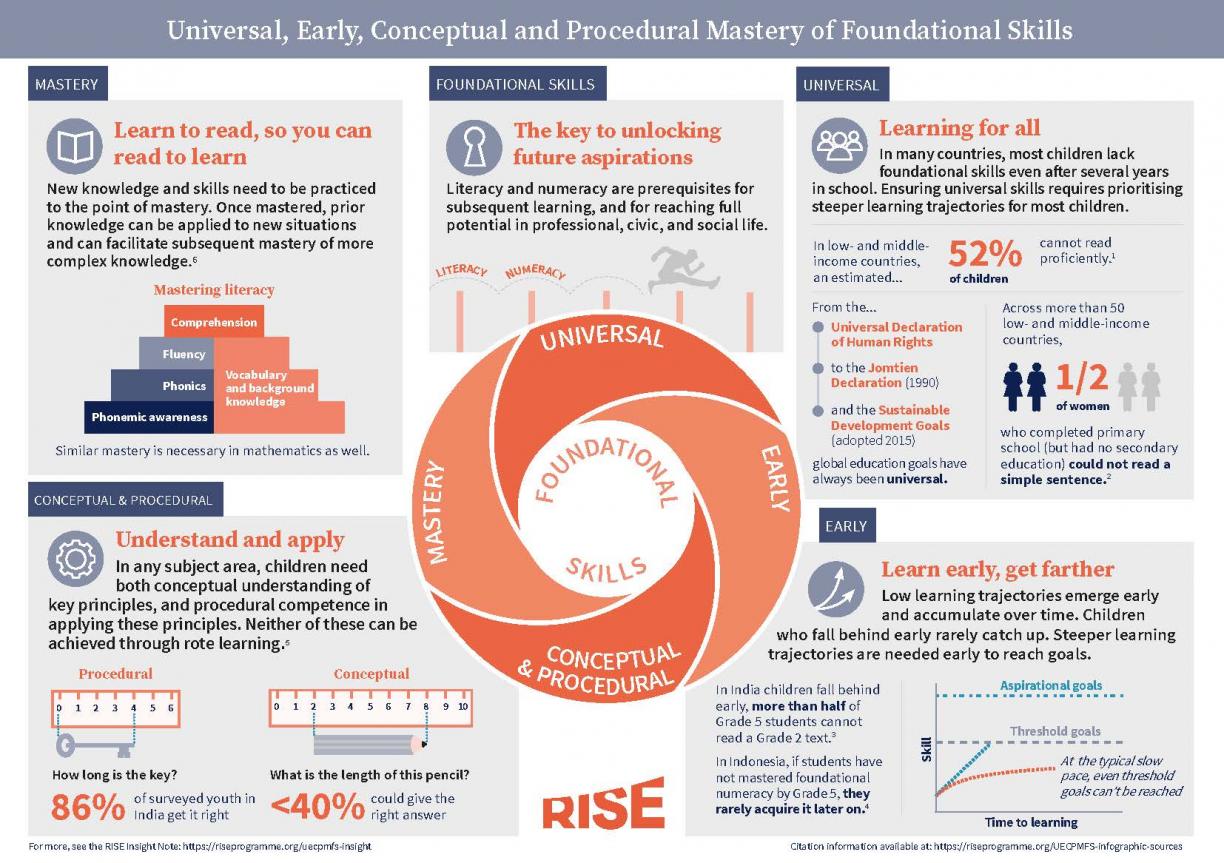Foundational skills
Children can’t progress in learning without mastering the basics first.
Learning is cumulative, like walking up a flight of stairs. We take stairs one at a time because we can’t jump from one storey of the house to another. Similarly, children need to learn certain foundational skills in reading and mathematics before they can reach more advanced skills.
What do we mean by ‘foundational skills’?
To achieve the education that they need to thrive in and contribute to their respective societies, children need universal, early, conceptual, and procedural mastery of foundational skills.
- Universal: Every child in the world should acquire foundational learning
- Early: Children need to start learning early, because those who fall behind rarely catch up
- Conceptual: Foundational learning must include more than rote learning. Children must be able to make sense of the world and understand concepts behind solving problems
- Procedural: In addition to understanding concepts, children need practice and fluency in procedures. They must learn how to do the steps to solve problems and apply skills practically
- Mastery: Children should achieve some agreed-upon level of proficiency and difficulty against which progress can be measured
- Foundational skills: Basic literacy and numeracy are vital, indispensable skills needed for virtually any further education and to lead an empowered, self-determined life.
For more, see our list of RISE research outputs on foundational skills.
Click here to download the foundational skills infographic.
Universal, Early, Conceptual and Procedural Mastery of Foundational Skills

